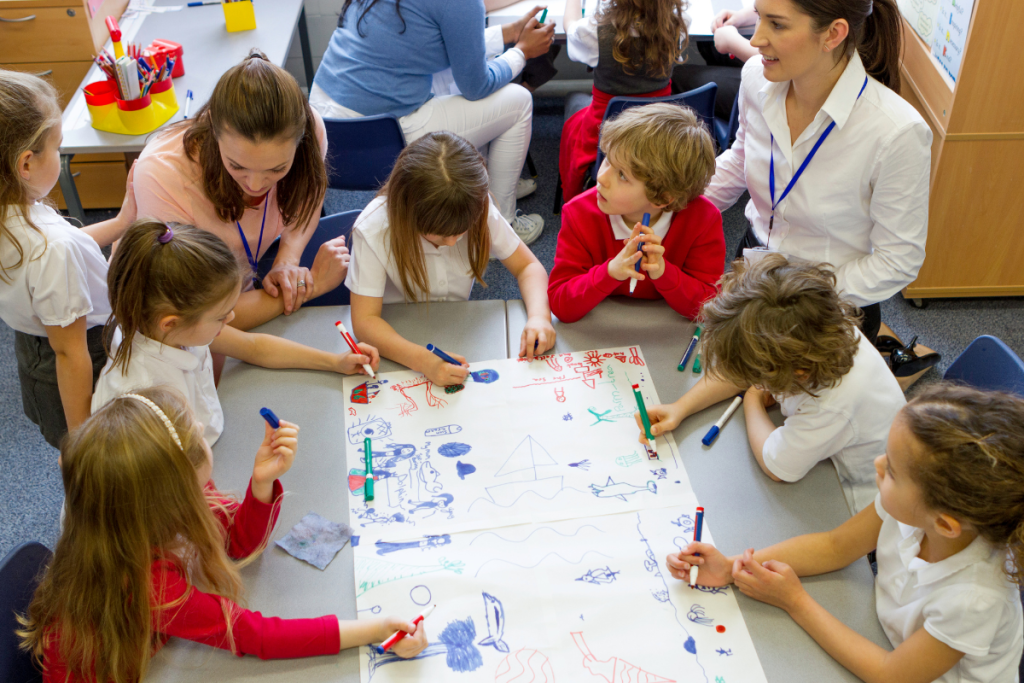Beyond the classroom: The value of extracurricular activities
Extra-curricular activities are an integral part of a pupil’s educational journey, going beyond the purposes of the classroom. These activities provide students with opportunities to explore their interests, develop new skills and foster personal growth. The value of participating in extracurricular activities goes far beyond academic achievement, shaping well-rounded individuals better prepared for future success.

Fostering social skills
Participating in extracurricular activities allows students to interact and collaborate with their peers outside the formal classroom environment. This provides invaluable opportunities to develop and enhance crucial social skills. Whether participating in a sports team, debate club or marching band, students learn to communicate effectively, work as part of a team and resolve conflicts. These social skills are essential for success in both the personal and professional aspects of life.
In addition, extracurricular activities encourage students to form relationships with people who share similar interests. These connections often lead to lifelong friendships and networking opportunities. Through interaction with diverse groups of people, students gain a deeper understanding and appreciation of different cultures, perspectives and backgrounds.
Accreditation in the UK: Ensuring academic excellence
The British accreditation gained by SLAM International signifies its commitment to providing an education in line with the esteemed British education system. UK accreditation ensures that SLAM International students receive a curriculum that emphasises academic excellence, critical thinking and innovation.
Thanks to its British accreditation, SLAM International is able to offer internationally recognised qualifications such as A Levels, BTECs and the International General Certificate of Secondary Education (IGCSE). These qualifications give students a competitive edge and open doors to prestigious universities around the world.
Exploring passions
Extracurricular activities offer students the freedom to explore and pursue their passions. While the curriculum provides a solid foundation of knowledge, extracurricular activities allow students to delve deeper into their interests and discover hidden talents. Whether it’s joining a photography club, participating in a robotics competition or volunteering, extracurricular activities provide hands-on experiences that foster personal growth and discovery.
By exploring a variety of activities, students gain a broader perspective of their own abilities, strengths and weaknesses. This self-knowledge helps them to make informed decisions and to choose appropriate academic and career paths. Extracurricular activities enhance critical thinking, problem solving and decision making, skills that can be applied in all areas of life.
Building resilience and character
Participating in extracurricular activities teaches students invaluable life lessons that cannot be learned in a traditional classroom. By setting goals, managing their time effectively and overcoming challenges, students develop resilience and perseverance. Whether it is suffering defeat in a sporting event or facing criticism during a theatre performance, pupils learn to accept failure and bounce back stronger.
Extracurricular activities cultivate leadership qualities and a sense of responsibility in pupils. In roles such as team captains, club presidents or event organisers, pupils learn to take charge, make decisions and delegate tasks. These experiences build confidence, personal motivation and the ability to work under pressure, all essential skills in the professional world.
Mejorar el rendimiento académico
Contrary to common belief, participating in extracurricular activities can improve academic performance rather than diminish it. Participating in activities outside the classroom helps students develop time management and discipline skills. By balancing their academic workload with extracurricular commitments, students learn to prioritise tasks and meet deadlines effectively.
In addition, participation in extracurricular activities offers students the opportunity to apply the knowledge and skills they acquire in the classroom. For example, a science club can complement theoretical concepts with practical experiments, enriching students’ understanding of scientific principles. This practical application of knowledge often improves academic performance, as students develop a deeper understanding of the subject matter.
Extracurricular activities play a vital role in a student’s holistic development, offering numerous benefits beyond traditional academics. Whether fostering social skills, exploring passions, developing resilience or improving academic performance, these activities shape well-rounded individuals who are better prepared for future success.
It is crucial that educational institutions and parents recognise and promote the value of out-of-school activities. By providing a diverse range of extracurricular options and facilitating student participation, we can ensure that students receive a well-rounded education that prepares them for the challenges and opportunities that lie ahead.
